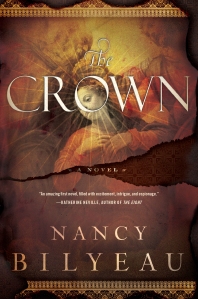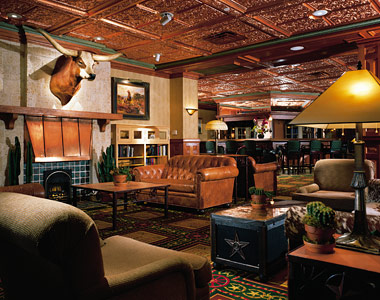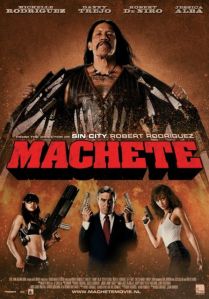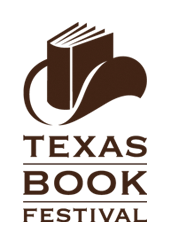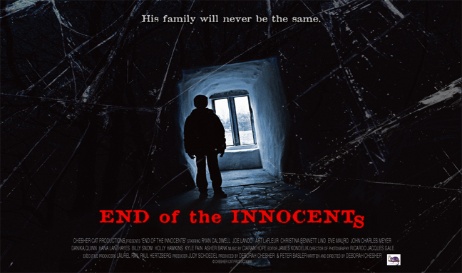I've known author Nancy Bilyeau for a couple years now and oddly enough, I've never met her in person. But...in the age before Facebook, we traveled around similar online writing circles, one of which is the Nichollscribes Yahoo group. This group is composed of screenwriters who were quarterfinalists or higher in the Nicholl Fellowships in Screenwriting. Nancy had two scripts reach the semi-finalist stage of the competition. Nancy then switched to writing novels, which I think was a brilliant career move on her part because..
Her debut novel The Crown is a historical thriller set during the Tudor period of English history. Simon and Schuster/Touchstone will release the novel on Tuesday, January 12, 2012 in the United States and Orion will release the novel on February 2, 2012 in the United Kingdom.
It's already getting some advanced buzz...
"The events of the period come to life in Nancy Bilyeau's dazzling and heart-wrenching novel. The Crown is evocative, provocative, and full of intriguing characters—a gorgeously written novel that has mystery and history, pathos and depth. This is a stunning debut about a woman whose spirit shines through and deeply moves the reader." —International Bestseller M.J. Rose "This fast-paced debut delivers Tudor intrigue and mystical thrills in one satisfying package—and leaves room for a sequel." —Kirkus "Bilyeau deftly weaves extensive historical detail throughout, but the real draw of this suspenseful move is its juicy blend of lust, murder, conspiracy, and betrayal." —O, The Oprah Magazine
Here's more about the novel...
Joanna Stafford, a Dominican nun, learns that her favorite cousin has been condemned by Henry VIII to be burned at the stake. Defying the sacred rule of enclosure, Joanna leaves the priory to stand at her cousin’s side. Arrested for interfering with the king’s justice, Joanna, along with her father, is sent to the Tower of London. The ruthless Stephen Gardiner, Bishop of Winchester, takes terrifying steps to force Joanna to agree to spy for him: to save her father’s life she must find an ancient relic—a crown so powerful, it may hold the ability to end the Reformation. Accompanied by two monks, Joanna returns home to Dartford Priory and searches in secret for this long-lost piece of history worn by the Saxon King Athelstan in 937 during the historic battle that first united Britain. But Dartford Priory has become a dangerous place, and when more than one dead body is uncovered, Joanna departs with a sensitive young monk, Brother Edmund, to search elsewhere for the legendary crown. From royal castles with tapestry-filled rooms to Stonehenge to Malmesbury Abbey, the final resting place of King Athelstan, Joanna and Brother Edmund must hurry to find the crown if they want to keep Joanna’s father alive. At Malmesbury, secrets of the crown are revealed that bring to light the fates of the Black Prince, Richard the Lionhearted, and Katherine of Aragon’s first husband, Arthur. The crown’s intensity and strength are beyond the earthly realm and it must not fall into the wrong hands. With Cromwell’s troops threatening to shutter her priory, bright and bold Joanna must now decide who she can trust with the secret of the crown so that she may save herself, her family, and her sacred way of life. This provocative story melds heart-stopping suspense with historical detail and brings to life the poignant dramas of women and men at a fascinating and critical moment in England’s past.
Thank you so much for taking the time to answer a few questions about your new book, Nancy!
I am glad to be here, Doug!
Joanna Stafford is the main heroine in your book The Crown. What's interesting about her character?
She’s a young woman who’s often divided. Her father’s an English nobleman, and her mother’s a Spanish lady-in-waiting. She “looks” different than most other women. She has selected a life of prayer and contemplation but she has quite the temper. Controlling her anger is her biggest challenge. She loves books and is very, very smart. Joanna excels in thinking “on her feet”—and that becomes critical quite a few times.
What is it about the Tudor era of English history that draws you to write about it?
So many exciting things to write about: love, war, upheaval, betrayal, faith. I love the Renaissance and that feeling in the 16th century that all sorts of new ideas were pouring in but medieval values still held. Amazing clothes!
How do you approach writing historical fiction? Does research fuel the fictional story or do you write the story first and then research what you need to ground it inside that world?
Sometimes research leads the way but more often I come up with story and then research to ground it. One of the reasons I picked the 1530s is I’ve been reading about it for years and so felt some comfort there. I wouldn’t have wanted to pick a place and time I know little about going in. Too daunting.
Are there any good sword fights in the book? Something Errol Flynn would love?
No, but I do have multiple stabbings! There’s a bit of torture and burning at the stake. And someone gets bashed in the head with a religious object.
I LOVE the cover of your book. Did you give any input into its creation?
Authors are asked to submit thoughts, so I sent in a couple of books of religious art, snapshots of the Cloisters of the Metropolitan Museum of Art, postcards, and a CD of nuns’ chanting—mood music.
You first started out writing screenplays, but then made the switch to novels. As a writer, was it difficult making the transition between the two mediums?
No, it wasn’t hard. There were certain techniques from screenwriting I found very very helpful! Such as making sure there are obstacles in the way of your main character, describing the environment characters move in, setup and payoff. It’s still storytelling. A lot of these skills I learned from screenwriter Max Adams—I think I met you in one of her classes, Doug. Now going from nonfiction to fiction—that is hard. A lot of writers can’t do it.
What is your writing process like?
My writing process is that I revise what I did during the previous writing session and then I start new material. I need about two hours to be effective but more is ideal. At about five hours I crash. The period of revising "starts the engine," so to speak. The tricky thing about The Crown and The Chalice is getting the voice. I am writing in the first person, from the POV of a young Catholic novice. I don't use obscure 16th century words but I try very hard not to let modern-slangy usage in there either. I have two readers who comb through my chapters flagging words that sound too modern. But also I need to keep the pace up while weaving through the story my historical detail. Plus I try to end every chapter with a hook or at least a feeling of intrigue. So this is not the kind of writing you can pick up when you have a few spare minutes. That's why I talk about "starting the engine." I usually listen to a piece of music first. Also I find "field trips" enormously helpful. As often as possible I took the subway to upper Manhattan, to the Cloisters Museum of the Metropolitan Museum of Art. I'd walk in the cloisters garden, sit in the Chapter House, and visit the room with the medieval tomb effigies. I also found incredible inspiration from a day at the Brooklyn Botanical Gardens in December. It had snowed heavily; no one else was around. I tramped through the snow for hours--ideas kept popping in my head. A friend told me snow is quiet and perhaps suppressing all other sounds allowed creative ideas to emerge. I don't know. But whatever happened, it was helpful!
You've worked for Rolling Stone, Entertainment Weekly, Good Housekeeping and as deputy editor of InStyle magazine so you know that side of the publishing world. Has that experience helped you in dealing with your publisher Simon & Schuster? Were there any differences between the publishing worlds of novels and magazines that you had to adjust to?
Being a magazine editor and writer means I produce "clean" pages, according to my agent anyway. My grammar and spelling are top-notch. But it never gave me much of an advantage in creating fiction. Editing nonfiction and writing fiction are really different things that use different muscles. Although I had dealt with literary agents as an editor I really didn't know how to get one myself. I asked, in an embarrassed way, if two agents I knew and liked would represent me, and it turns out my kind of book was not their kind of book so they said no. Agents specialize to a degree I hadn't realized. I got my agent through Publisher's Marketplace like anyone else. I sent him an email with a description of my book and the first five pages attached, as he requested on his website. He responded pretty quickly. I think the fact that I was an editor at InStyle helped get his attention but if he hadn't thought the book was good he wouldn't have taken me. Also if I had not worked in media at all, I think my agent would still have signed me. Because historical mystery/thrillers are his passion with a special place in his heart for the Tudor period. So we are made for each other. Now another way being a longtime text editor helps me is on the back end, when my book is being edited. I don't get upset with queries or suggestions; I've walked too many miles in those shoes. I LIKE being copy-edited, and I sent an email to the Simon&Schuster copy editor saying "Be as aggressive as you like--I welcome all questions!" I don't know if that happens to them all that often. LOL.
Who is your all-time favorite fictional heroine? And why?
Evil question, Doug. How do I choose between Anna Karenina, Elizabeth Bennett, Countess Olenska, Scarlett O’Hara, V.I Warshawski, Mina Harker and Jo March?? But since you’ve pushed me up against the wall, my runner-up would be Anne Elliott of Persuasion and number one goes to the unnamed Second Mrs. DeWinter of Rebecca. They are both flawed and shy women who are tested and become strong and they are both unbelievably relatable and sympathetic.
What projects are you working on now?
I just finished the sequel to The Crown, it’s called The Chalice. It brings back most of the main characters of the first book, plus I bring in a LOT of new ones. I think it’s scarier.
Now, I'm going a little James Lipton on you, Nancy, so get ready.
What is your favorite word?
Mom.
What is your least favorite word?
synergy
What sound or noise do you love?
The ocean. Also 80s pop songs.
What sound or noise do you hate?
Leaf blowers! That horrible grinding hum—and the gas smell. Ugh. But other than that, I can tolerate anything. New York City is unbelievably noisy. The only time noise truly sent me over the edge is when I lived in an apartment building below subletters who would hit the clubs every night and then come home at 3 a.m. and stomp around on the wood floor with French techno turned up high. Torture.
What profession, other than your own, would you like to attempt?
I know I’m supposed to say doctor or social worker, but pastry chef would be fantastic. At one point when the New York career thing was going badly I daydreamed a lot about running a kayak rental business on Vancouver Island.
Always wanted to try kayaking. Thanks, Nancy!

